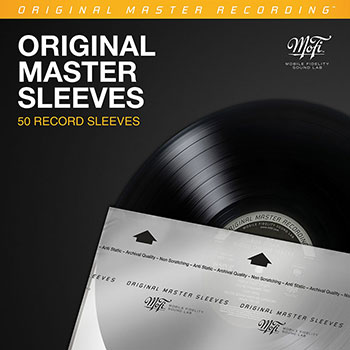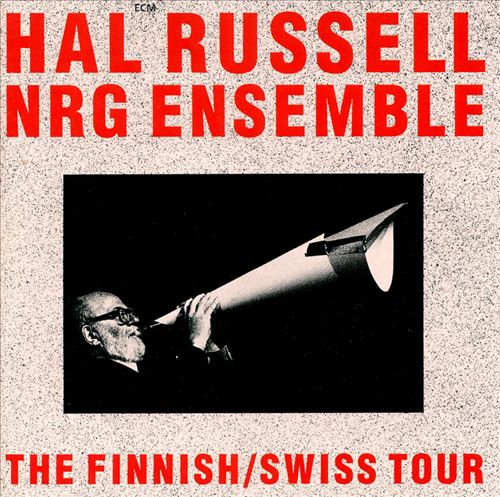Logowanie
Dziś nikt już tak genialnie nie jazzuje!
Bobby Hutcherson, Joe Sample
San Francisco
SHM-CD/SACD - NOWY FORMAT - DŻWIĘK TAK CZYSTY, JAK Z CZASU WIELKIEGO WYBUCHU!
Wayne Shorter, Freddie Hubbard, Herbie Hancock, Ron Carter, Elvin Jones
Speak no evil
UHQCD - dotknij Oryginału - MQA (Master Quality Authenticated)
Chesky! Niezmiennie perfekcyjny
Winylowy niezbędnik
ClearAudio
Double Matrix Professional - Sonic
najbardziej inteligentna i skuteczna pralka do płyt winylowych wszelkiego typu - całkowicie automatyczna
Hal Russell NRG Ensemble
The Finnish / Swiss Tour
 >>> Płyty winylowe należy przechowywać WYŁĄCZNIE w NAJLEPSZYCH NA ŚWIECIE koszulkach produkcji legendarnej wytwórni MOBILE FIDELITY.
100% gwarancji na pozbycie się trzasków będących w istocie w 90% efektem ładunków elektrostatycznych a nie uszkodzeń mechanicznych płyty! <<<
>>> Płyty winylowe należy przechowywać WYŁĄCZNIE w NAJLEPSZYCH NA ŚWIECIE koszulkach produkcji legendarnej wytwórni MOBILE FIDELITY.
100% gwarancji na pozbycie się trzasków będących w istocie w 90% efektem ładunków elektrostatycznych a nie uszkodzeń mechanicznych płyty! <<<
 >>> Ten zestaw to podstawa każdego toru winylowego! <<<
>>> Ten zestaw to podstawa każdego toru winylowego! <<<
 >>> Płyty winylowe należy przechowywać WYŁĄCZNIE w NAJLEPSZYCH NA ŚWIECIE koszulkach produkcji legendarnej wytwórni MOBILE FIDELITY.
100% gwarancji na pozbycie się trzasków będących w istocie w 90% efektem ładunków elektrostatycznych a nie uszkodzeń mechanicznych płyty! <<<
>>> Płyty winylowe należy przechowywać WYŁĄCZNIE w NAJLEPSZYCH NA ŚWIECIE koszulkach produkcji legendarnej wytwórni MOBILE FIDELITY.
100% gwarancji na pozbycie się trzasków będących w istocie w 90% efektem ładunków elektrostatycznych a nie uszkodzeń mechanicznych płyty! <<<
 >>> Ten zestaw to podstawa każdego toru winylowego! <<<
>>> Ten zestaw to podstawa każdego toru winylowego! <<<
- Hal Russell NRG Ensemble
Hal Russell deserves an entry in the dictionary under the word free, for how can the mindful listener feel anything else when steeped in the incendiary playing of the late Renaissance man. The Finnish/Swiss Tour, recorded during his first European tour in November of 1990 at a tender 64, was my second Hal Russell experience, after The Hal Russell Story. Looking back on this discovery, which as of this review can be counted in days, I wonder how I never encountered Hal Russell until only recently. Then again, often the most perspective-altering music seeks us out only when the time is ripe, does it not? Russell famously picked up his first saxophone at age fifty: pure happenstance but love at first play. As a drummer he beat along with the greats: John Coltrane, Miles Davis, Benny Goodman, Sarah Vaughan…the list goes on. With a songbook of over 400 original compositions and a spirit to match, Russell seems a veritable John Zorn of creative genius. Yet that genius lies as much in his demeanor as in his explosive tendencies on stage. Thankfully, if almost impossibly, he shares that stage here with the NRG Ensemble, a brilliant quartet consisting of Mars Williams on reeds, Brian Sandstrom and Kent Kessler on basses and guitars, and Steve Hunt on vibes. With this support network shining his guillotine at every turn, Russell is sure to leave not a few heads rolling in his wake. Such metaphorical language might leave one under the false impression, however, that this is confrontational music meant to baffle and alienate. Nothing could be further from the truth. What we have is an ethos that thrashes with flailing but open arms, welcoming all who would listen into an amusement park of thrilling rides. We encounter, for example, the ecstatic tenors of “Hal The Weenie,” which according to our illustrious leader shoot the breeze in honor of Halloween, thus slicing up a most twisted Jack-o’-lantern of free jazz brilliance that has the crowd in gleeful awe, and us before our stereos in envy for not having been there when it all went down. Rusell is, without a doubt, the center of attention, if not always in the playing (Williams’s blasting tenor siphons much of that credit; just spin “Ten Letters Of Love” and know) then in the writing, for his name lies behind every shattered tune. His dialoguing with Williams in “Raining Violets,” an acrid romp through some intense melodic flowers indeed, is strangely comforting and proof positive of the irresistible nature of these goings on. For go on we do, lost in the labyrinth of a didgeridoo’s darkest visions in “For MC” (featuring Russell on a lovely muted trumpet) and found dreaming a “Dance Of The Spider People.” Williams beguiles us in this web of wonders with a luscious soprano, Kessler providing the ostinato before the whole thing cracks like stressed glass in slow motion to the tune of its own masochism. “Linda’s Rock Vamp,” on the other hand, skewers its kabobs one instrumental morsel at a time and roasts them over raging conflagration of attention. Russell’s deft solo on vibes opens the floor in “Temporarily.” The ensuing debate gets raucous fast, rivaling even the British Parliament with its overwhelming tenors. Yet one moment above all defines the Finnish/Swiss experience in the blink of an eye. It occurs after Russell and Williams have just finished the introductory crosstalk of “Monica’s Having A Baby,” tumbling like a jellyroll aflame into a pile of abstraction. Though we are breathless, a quick “thank you” from Russell is all it takes for him to dive headfirst into the incredible aliveness of “Aila/35 Basic.” The offhandedness of this transition speaks, actually, to the seriousness of his humor, and betrays an artist totally comfortable in his skin. No survey of this record would be complete without a bow before the totem of “Mars Theme.” For this hot ticket, Russell jumps from drums to tenor to trumpet to soprano faster than you can say “Red Bats With Teeth” (cf. David Lynch’s Lost Highway), for Bob Sheppard’s solo in that classic fever dream is precisely what comes to mind. It is a bridge into the high-octane menagerie of a castle scarred by barbed wire, its towers reaching an apex of intensity so bright that we cannot help but close our eyes and dream of what Russell might still sound like on the other side. Hal Russell tenor and soprano saxophones, trumpet, vibraphone, drums Mars Williams tenor and soprano saxophones, didgeridoo Brian Sandstrom bass, trumpet, guitar Kent Kessler bass, bass guitar, didgeridoo Steve Hunt drums, vibraphone, didgeridoo































